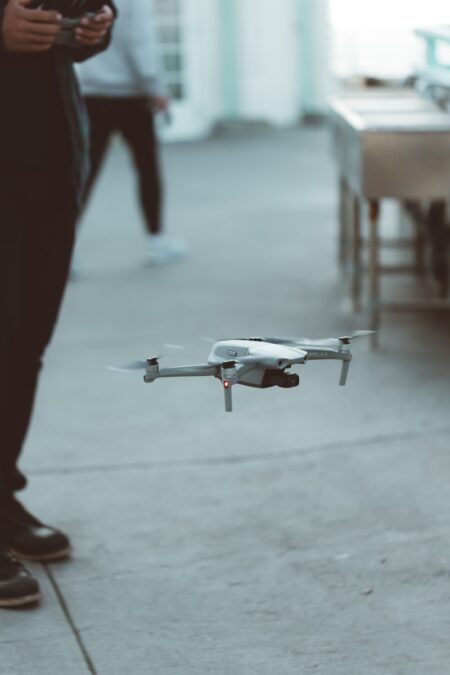Enhancing Healthcare Delivery with 5G Technology
Transforming Remote Diagnostics in Saudi Arabia and the UAE
The advent of 5G remote diagnostics marks a pivotal moment in the healthcare industry, particularly in regions like Saudi Arabia and the UAE. These nations are at the forefront of integrating advanced technologies to enhance healthcare delivery and patient outcomes. 5G technology, with its ultra-fast speeds and low latency, enables healthcare providers to offer superior remote diagnostic services, bridging the gap between patients and medical professionals regardless of geographical barriers.
In Saudi Arabia, the healthcare sector is leveraging 5G to facilitate real-time consultations and diagnostics. With the deployment of 5G networks, physicians can conduct virtual examinations, access high-resolution medical images instantly, and provide accurate diagnoses without the need for patients to travel. This is particularly beneficial for remote areas where access to specialized medical services is limited. By utilizing 5G-enabled diagnostic tools, healthcare providers can ensure timely and effective treatment, improving patient satisfaction and health outcomes.
The UAE is also making significant strides in utilizing 5G technology for healthcare. In cities like Dubai, hospitals are adopting 5G-powered remote diagnostic systems that allow for seamless communication between doctors and patients. These systems enable the transmission of large medical data files, such as MRI and CT scans, in real-time, facilitating faster and more accurate diagnoses. Moreover, 5G technology supports the integration of artificial intelligence (AI) in diagnostics, enhancing the precision and efficiency of medical assessments and treatment plans.
Boosting Operational Efficiency and Reducing Costs
The implementation of 5G remote diagnostics not only improves patient care but also significantly boosts operational efficiency within healthcare facilities. By reducing the need for in-person consultations and hospital visits, healthcare providers can optimize resource allocation and streamline workflows. This efficiency is particularly crucial in the context of managing large patient volumes and addressing the increasing demand for healthcare services in regions like Riyadh and Dubai.
In Riyadh, hospitals are utilizing 5G technology to enhance telemedicine services, enabling doctors to monitor patients’ health conditions remotely and intervene when necessary. This proactive approach to healthcare reduces the likelihood of complications and hospital readmissions, ultimately lowering healthcare costs. Furthermore, the use of 5G-enabled wearable devices allows for continuous monitoring of patients with chronic conditions, providing real-time data to healthcare providers and enabling timely interventions.
Dubai’s healthcare sector is also reaping the benefits of 5G technology. By integrating 5G with blockchain and AI, hospitals can enhance data security and patient privacy while improving the accuracy of remote diagnostics. This integration ensures that patient records are securely transmitted and accessed by authorized personnel only, maintaining the confidentiality and integrity of sensitive medical information. Additionally, the efficiency gained from 5G remote diagnostics translates into cost savings for both healthcare providers and patients, making quality healthcare more accessible and affordable.
Conclusion: Pioneering the Future of Healthcare with 5G
The transformative potential of 5G remote diagnostics is evident in the advancements seen in Saudi Arabia and the UAE. By harnessing the power of 5G technology, these nations are setting new standards in healthcare delivery, ensuring that patients receive timely and accurate diagnoses regardless of their location. The integration of 5G with other cutting-edge technologies such as AI and blockchain further enhances the capabilities of remote diagnostics, paving the way for a future where healthcare is more efficient, cost-effective, and patient-centric.
As we look ahead, it is crucial for healthcare providers and policymakers to continue investing in 5G infrastructure and related technologies. By fostering innovation and collaboration, the healthcare industry can fully realize the benefits of 5G remote diagnostics, ultimately improving the quality of life for individuals and communities across Saudi Arabia, the UAE, and beyond. The journey towards a more connected and efficient healthcare system is just beginning, and the possibilities are truly limitless.
Additional Insights on 5G Remote Diagnostics
The impact of 5G remote diagnostics extends beyond immediate healthcare improvements. In Saudi Arabia and the UAE, the adoption of 5G technology is also fostering the development of smart hospitals and advanced healthcare ecosystems. These smart hospitals leverage 5G connectivity to integrate various digital health solutions, including telemedicine, electronic health records (EHRs), and AI-driven diagnostic tools, creating a holistic and interconnected healthcare environment.
Furthermore, 5G remote diagnostics are playing a pivotal role in pandemic preparedness and response. During the COVID-19 pandemic, the ability to conduct remote diagnostics and monitor patients from a distance proved invaluable. With 5G, healthcare systems can quickly adapt to future pandemics or public health emergencies by enabling rapid deployment of remote diagnostic services and ensuring continuous care for patients without overwhelming healthcare facilities.
Embracing a Digital Health Future
As we embrace the digital health future, the synergy between 5G remote diagnostics and other emerging technologies will continue to drive innovation and transformation in the healthcare sector. The combination of 5G with generative artificial intelligence (AI) holds the potential to revolutionize diagnostics by enabling predictive analytics and personalized medicine. AI algorithms can analyze vast amounts of data in real-time, providing healthcare professionals with actionable insights and improving diagnostic accuracy.
In addition, the integration of 5G with the metaverse offers exciting possibilities for immersive healthcare experiences. Virtual reality (VR) and augmented reality (AR) applications powered by 5G can enhance medical training, patient education, and therapeutic interventions. For instance, surgeons can use VR simulations to practice complex procedures, while patients can benefit from AR-guided rehabilitation exercises, all facilitated by the high-speed and low-latency capabilities of 5G networks.
—
#5GRemoteDiagnostics #HealthcareInnovation #SaudiArabia #UAE #Riyadh #Dubai #ChangeManagement #ExecutiveCoachingServices #EffectiveCommunication #BusinessSuccess #ManagementConsulting #ArtificialIntelligence #Blockchain #TheMetaverse #GenerativeArtificialIntelligence #LeadershipandManagementSkills #ProjectManagement

